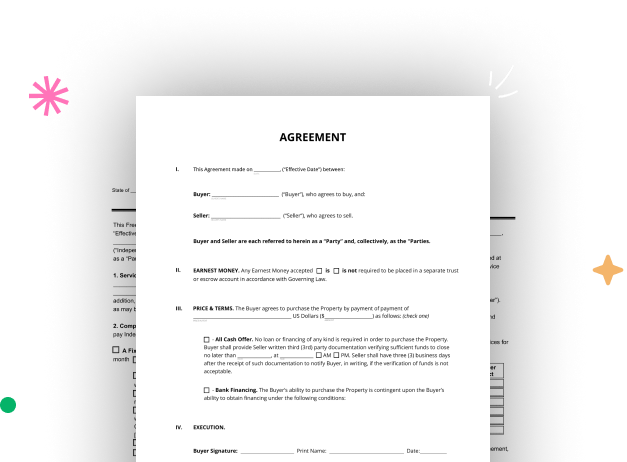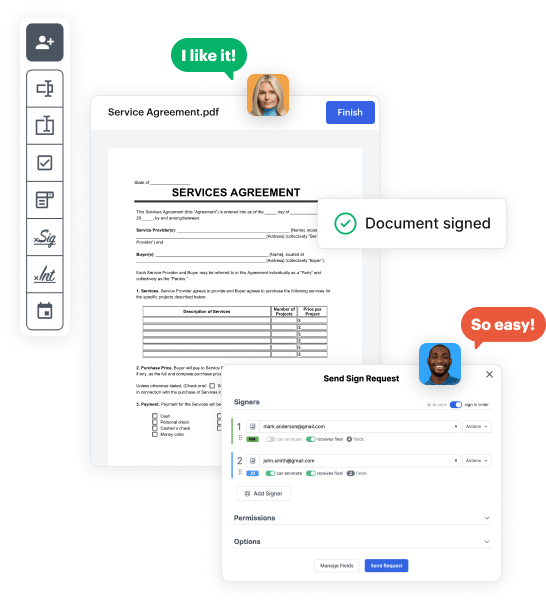

Navigate to the DocHub website and register for the free trial. This gives you access to every feature you’ll require to build your Fair Debt Collection Practices Act Form without any upfront cost.
Sign in to your DocHub account and proceed to the dashboard.
Hit New Document in your dashboard, and select Create Blank Document to design your Fair Debt Collection Practices Act Form from scratch.
Add different elements such as text boxes, radio buttons, icons, signatures, etc. Organize these elements to match the layout of your form and assign them to recipients if needed.
Organize your form easily by adding, repositioning, removing, or merging pages with just a few clicks.
Convert your newly designed form into a template if you need to send many copies of the same document repeatedly.
Send the form via email, share a public link, or even post it online if you aim to collect responses from a broader audience.